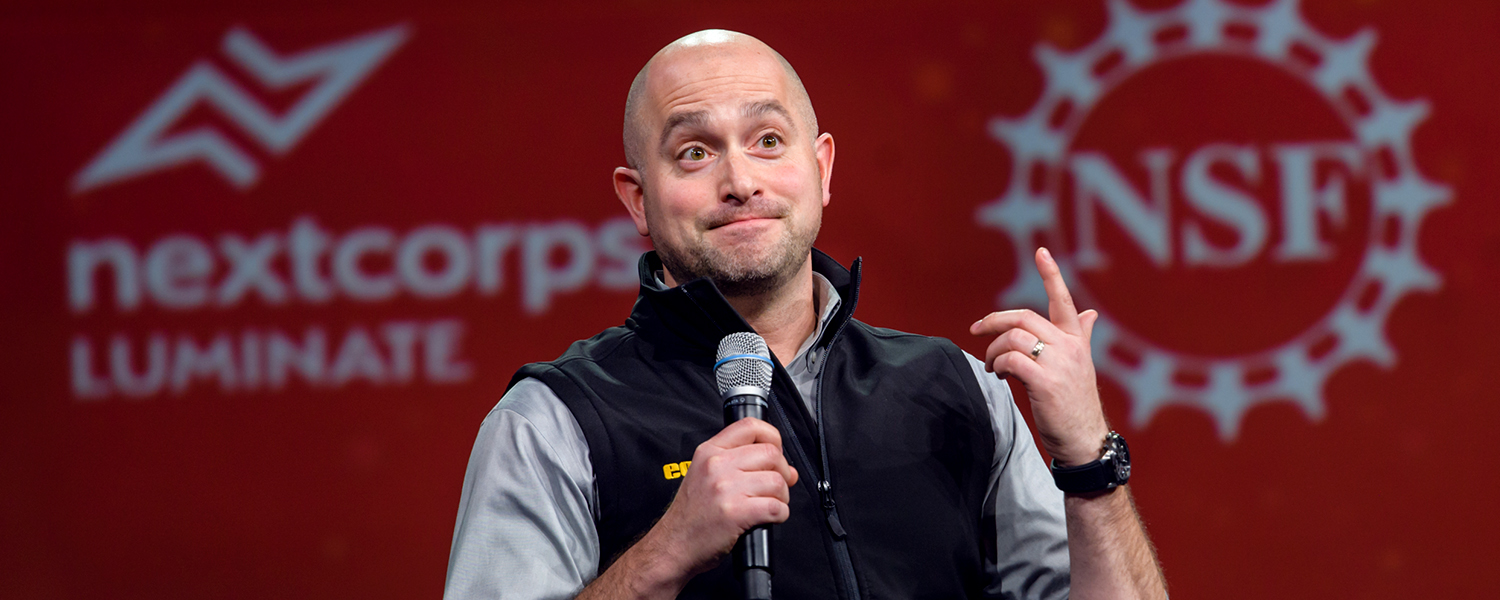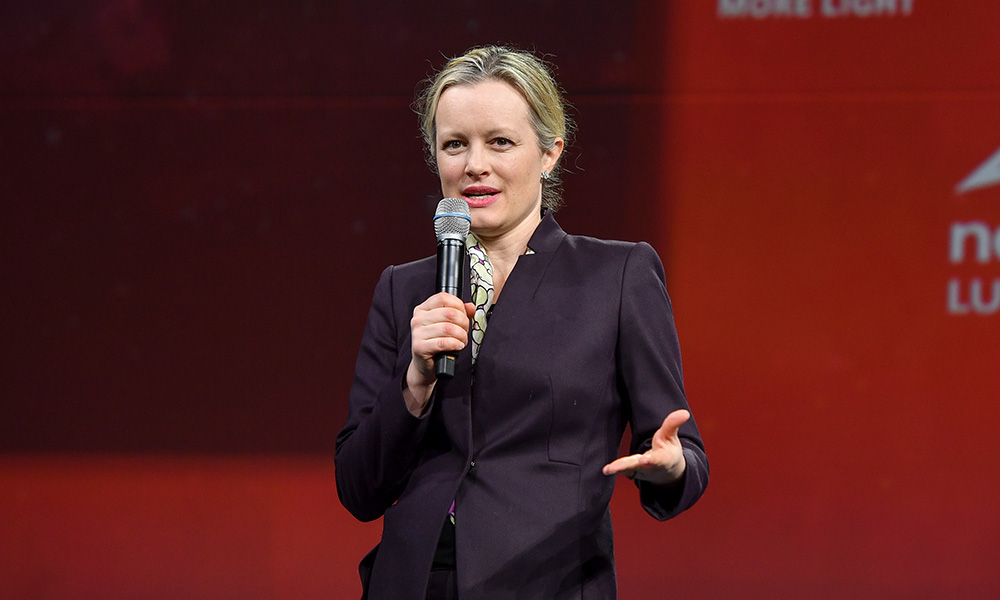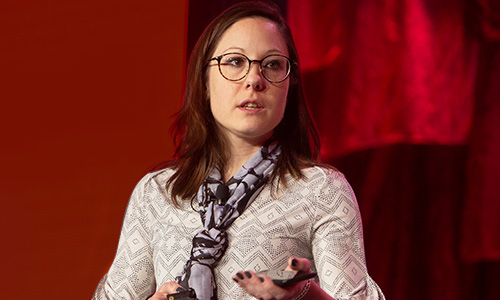
SPIE Startup Challenge is a chance for leaders of new optics and photonics companies to shine a light on their innovation, hard work, and ingenuity.
Applications review
Finals round
Tips and training
The Startup Challenge application process is now closed. Thank you to all of our applicants. Finalists for the 2024 competition will be announced in November.
To apply, a written application and a video pitch are both required. All questions on the written application must be answered. Incomplete applications will not be evaluated.

Applicants to the Startup Challenge will have their applications evaluated by experienced entrepreneurs, investors, and business development experts, who will then share their feedback.
Based on the written application and video pitch, judges select the teams who become Startup Challenge Finalists. These teams are invited to live pitch rounds, which will occur at Photonics West 2024, in the Moscone Center, San Francisco, California, USA. The attendees of Photonics West are invited to the presentations.
A representative from each team will make a five-minute pitch to a panel of judges. Judges then have five minutes to ask questions of the presenter. Judges will decide the top three pitches, and the winners will be announced at a final awards ceremony. In all rounds, the decisions of the judges are final.
Evaluators will provide written feedback for the materials and pitches that teams provide. Each application is evaluated on strength of business case, financial case, and the trajectory of the team. Judges select an equal number of teams from each track who will advance to the finals at Photonics West. These teams are invited to enter the live pitch round of the competition.

The final round will occur during SPIE Photonics West, at Moscone Center, San Francisco, California.
A representative from each team will make a five-minute pitch to a panel of judges. Judges then have five minutes to ask questions of the presenter. Judges will decide the top three pitches, and the winners will be announced at a final awards ceremony. In all rounds, the decisions of the judges are final.

Final pitch decks must be sent electronically to the organizers by the stated deadline.
Oral pitches for the Startup Challenge can be no longer than five minutes each. Extra time is not allowed.
Finals pitches must be made live and in person at Photonics West by the applicant or a team member named in the application.
After the pitch, judges will have additional time to ask questions.
Learn tips and tricks from leading experts.

Develop a narrative
Oral pitches for both rounds of the Startup Challenge can be no longer than five minutes each. In this time, presenters need to address:
Most pitch coaches recommend developing a narrative structure to tell this as a story rather than using a lot of bullet points and dense slides. Narratives have an introduction to the protagonist (you and the team), the conflict or problem, some moments showing how the problem is solved, and a resolution which includes your vision for the company. With only five minutes to catch the attention of judges, personal stories about why you are the person to solve the stated problem is a great way to hold their attention.
Pitches can be supported by a PowerPoint or PDF slide deck. However, presenters often focus too much on the information in their deck and not enough on the messages they are sending. When it comes to pitch slides, less is more. Slides that are overly complicated to follow or busy with information distract from what you are saying. Avoid large movies that may not load and loop or lots of animations that add noise. Keep it simple.
Not a technical talk
Your pitch deck should not be a technical talk. You may structure these pitch deck slides as you wish; however, consider reviewing the expert advice and tips found in the additional resources articles to help inform your best effort.
Additional resources
If you have questions about eligibility, participation, expectations, sponsorship, or anything related to the SPIE Startup Challenge, please contact innovation@spie.org.